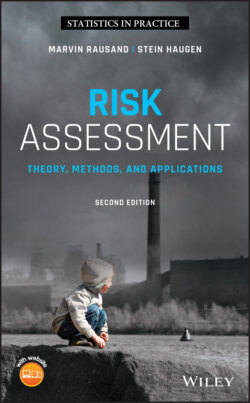Читать книгу Risk Assessment - Marvin Rausand - Страница 87
Definition 2.24 (Subjective probability)
ОглавлениеA numerical value in the interval representing an individual's degree of belief about whether or not an event will occur.
In the Bayesian approach, it is not necessary to delimit probability to outcomes of experiments that are repeatable under the same conditions. It is fully acceptable to give the probability of an event that can only happen once. It is also acceptable to talk about the probability of events that are not the outcomes of experiments, but rather are statements or propositions. This can be a statement about the value of a nonobservable parameter, often referred to as a state of nature. To avoid a too‐complicated terminology, we also use the word event for statements, saying that an event occurs when a statement is true.
The degree of belief about an event is not arbitrary but is the analyst's best guess based on her available knowledge about the event. The analyst's (subjective) probability of the event , given that her knowledge is , should therefore be expressed as
(2.3)
The knowledge may come from knowledge about the physical properties of the event, earlier experience with the same type of event, expert judgment, and many other information sources. For simplicity, we often suppress and simply write , but we should not forget that this is a conditional probability depending on .
In a risk analysis, the word subjective may have a negative connotation. For this reason, some analysts prefer to use the word personal probability, because the probability is a personal judgment of an event that is based on the analyst's best knowledge and all the information she has available. The word judgmental probability is also sometimes used. To stress that the probability in the Bayesian approach is subjective (or personal or judgmental), we refer to the analyst's or her/his/your/my probability instead of the probability.
